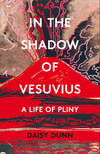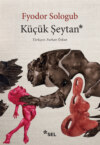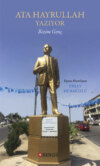Kitabı oku: «In the Shadow of Vesuvius», sayfa 5
Pliny the Elder could not take credit for being the first man to speak of the oyster and pearl’s susceptibility. Over a century before him, Sergius Orata, the first Italian to cultivate oyster farms at decadent Baiae in the Bay of Naples, had taken to transporting oysters from Brundisium (Brindisi) in Italy’s heel and depositing them in the Lucrine Lake in Campania.47 Once the oysters, ordinarily farmed on ropes, had absorbed the lake’s delicious waters, it did not matter where they started life. Their high price depended on people’s belief in their ability to absorb the richness of their surroundings.
Pliny the Elder had not liked the idea of Romans risking their lives to retrieve oysters from the depths when they might have grown all they needed in simple kitchen gardens. If he quaffed the occasional one it was not because he aspired to eat ‘the palm of our tables’.48 Provided an oyster was good – sealed, not too slimy, not too meaty, more striking for its thickness than diameter, caught neither in mud nor on sand but on a hard surface like a rock – he believed that the odd one might benefit his health. Oysters, he said, can settle the stomach and soften the bowels, restore the appetite and plump the skin, purge ulcers from the bladder, chase chilblains from the toes, and reduce the size of swollen glands.49 The oyster was therefore a paradox. Luxurious on the one hand and healing on the other, it defied the kind of clear moral classification that Pliny the Elder liked to apply to the things around him. While the oyster was multifarious enough to earn his interest, Pliny the Elder was on balance reproachful: ‘There is no greater cause for the destruction of morals and rise of luxury than shellfish.’50 Given his friends’ manners, his nephew Pliny was inclined to agree.
In his abstemiousness and censoriousness towards shellfish, Pliny proved himself to be very much his uncle’s son. When his friend and fellow equestrian Septicius Clarus failed to show at his snow-and-spelt dinner, he assumed it had been because he had gone after the oysters and sea urchins on offer elsewhere. It was not like him to be tempted away by oysters: Pliny counted no one in his acquaintance ‘truer or more straightforward, accomplished or trustworthy’.51 On close enough terms with Pliny to have him assist in promoting his nephew to the senate, Septicius must have taken his teasing letter in good grace. Sue him for every morsel of food he had missed? He must be joking. The few surviving details of Septicius’ life shed light on his respectability. He was named as the dedicatee of Pliny’s collected letters as well as the most important biographical work of the age, Suetonius’ Lives of the Caesars.
Some years after Pliny’s death, Septicius Clarus and Suetonius travelled to Britain. Following their landings under Claudius, the Romans had suppressed the revolt of Boudicca in AD 60 or 61 and worked their way steadily northwards to conquer much of England and Wales. In AD 122, Trajan’s successor, Hadrian, launched an expedition to settle pockets of unrest and begin work on the wall that would eventually stretch from the east coast to the west and mark the northernmost frontier of the Roman empire. Septicius was praetorian prefect, Suetonius private secretary to the emperor. Both were powerful roles into which they appear to have relaxed only too easily. In the course of the British campaign they were dismissed from their posts, both allegedly on grounds of overfamiliarity with Hadrian’s wife.52 It was a late and fallible source that cited the reason for their dismissal, but it may just be that Septicius finally got his comeuppance for the shameless social climbing Pliny had scolded him for.
As for Suetonius, Pliny would have been surprised he had it in him. Before becoming a prolific author, Suetonius had cut a shy and self-doubting figure, at least when Pliny was around. He was less than ten years younger than Pliny but emerges almost boy-like from the Letters.53 Reticence was his defining characteristic. Pliny once helped him to secure a small estate and, as a first step towards public office, a military tribunate, or junior post, which Suetonius passed on to a relative.54 While Septicius Clarus ‘often urged’ Pliny to publish his letters, Pliny practically implored Suetonius to publish work of his own. Prior to his Lives, Suetonius completed a biographical compendium of famous men, including Pliny the Elder, which Pliny must have been eager to see released into the world.55 Within their circle of mutual encouragement, Pliny confessed to being ‘hesitant about publishing’, but Suetonius outdid ‘even’ him in his ‘dallying and delaying’.56
By the time Suetonius decided to try his hand at law, he was suffering from nightmares. He must have been in his late twenties when he wrote to Pliny seeking an adjournment to a trial on the basis of having had bad dreams. A more bullish lawyer might have told him to pull himself together, but Pliny was sympathetic. A perfectionist who was ‘never so prepared as to not rejoice at a delay’, Pliny had also experienced dreams in the past which appeared to augur ill for his cases.57 Around the time he embarked upon his legal career Pliny married for the first time. Nothing is known of his first wife, but he recalled in a letter how he was about to proclaim against ‘very powerful citizens and even friends of the emperor’ when he dreamed that his mother-in-law got down on her knees and begged him not to go through with the trial. The Romans believed that dreams merited deep consideration on the basis that they might have some bearing upon waking life. Like the Greeks before them, they realised that, while some dreams come to pass, others presage a less obvious result.
Any dream involving a mother figure was always ripe for discussion. On the Interpretation of Dreams, a definitive guide in five volumes, was published a generation after Pliny died and laid out what could come of nightly visits by matriarchs. The book was an important influence on Sigmund Freud, who read it before writing his Interpretation of Dreams in 1899, and described a number of possible scenarios. A senator like Pliny who might dream of having sex with his mother had reason to rejoice, provided he had adopted the missionary position; the mother symbolised the state, and one who governed his partner sexually could be sure to govern well politically.58 But a man of fragile health who dreamed of having sex with his mother on top, might predict his own death – for earth, Mother Earth, does not lie above the living. Such earthy thoughts could not have been further from Pliny’s conscious, but at their root lay the old idea that, for all the many things a dream can symbolise, Sleep is little more than a shadow of Death.
Since adjournments were not permitted in the Court of One Hundred, Pliny had had no choice but to ignore the warning of his dream and go through with his trial. The words he had used to reassure himself then were the words he used now to reassure Suetonius: ‘The best thing is to fight for one’s country.’59 With this hearty expression of patriotism, a quote from Homer’s IIiad, the young Pliny had stormed into the basilica, confronted the opposition, and promptly won his case. He recommended that Suetonius did the same. If his dream rendered the prospect of doing so too frightening, then Suetonius was well advised to interpret it to a better outcome. As Homer had illustrated, dreams were meaningful or meaningless depending on which of two gates they issued from. There was a gate made of horn and another of ivory. Dreams which poured through the ivory gate, according to Odysseus’ wife Penelope, were empty. But those which passed through the horn gate ‘bring the truth to pass whenever a mortal sees them’.60 It was to the gate of ivory, through which ‘the spirits of the dead send false dreams towards the sky’, that Aeneas and the Sibyl were led as they prepared to leave Hades in Virgil’s Aeneid.61 By departing through the gate of false dreams it was as if their journey to the land of the dead had never happened.
Pliny anticipated that Suetonius might still struggle and told him that he would attempt to delay his case. ‘It’s difficult, but I’ll try,’ he promised, for as Homer said, ‘a dream is from Zeus.’62 The line was a wry comment on the difficulty of interpreting one’s own dreams, for as he knew only too well, even dreams from Zeus could be deceptive. In the Iliad, Agamemnon, commander of the Greek army, was famously deceived into thinking that he could take Troy at once after the King of Pylos appeared to speak to him in a dream.63 On waking he decided first to test his men’s resolve by encouraging them to abandon the war and return home, since they had no hope of sacking Troy. Far from rejecting his plan and rallying to fight all the more defiantly, his soldiers shamefully got up to leave. It was up to Odysseus to talk them into staying. There was no chance of concluding the war after nine years in a single day. The dream was false. Vita vigilia est.
FOUR
Solitary as an Oyster
‘You are fettered,’ said Scrooge, trembling. ‘Tell me why?’
‘I wear the chain I forged in life,’ replied the Ghost. ‘I made it link by link, and yard by yard; I girded it on of my own free will, and of my own free will I wore it. Is its pattern strange to you?’
Charles Dickens, A Christmas Carol, 1843, Stave I
The festival of the Saturnalia was for most Romans, though not for Pliny, ‘the very best of days’.1 A week of wine and banquets, presents and practical jokes, it took place around the solstice each December and honoured Saturn, the Roman god of time and the seasons. Work ceased, togas were hung up, festive robes and caps put on, bottles opened, meat sliced, dice thrown, and roles reversed.2 Pliny had a couple of choices as to where to spend the holiday. He could stay in Rome and look at flamingos from the Nile, pheasants from Georgia, guinea fowl from Numidia (all the birds his uncle had discouraged Romans from travelling the world to see), while feasting – in the presence of dwarves and female gladiators – on nuts from Pontus, dates from Palestine, plums from Damascus, figs from Ibiza, and jars upon jars of wine.3 Or he could travel thirty kilometres south-west to the coast of the Tyrrhenian Sea and recline alone in a room that ‘not the voices of the younger slaves, nor the murmur of the sea, nor thunder nor lightning, nor light of day could reach, provided the windows were not open’.4 Pliny chose the latter.
There was something of Scrooge to Pliny come midwinter, ‘secret, and self-contained, and solitary as an oyster’.5 The arrival of the Saturnalia each year was his prompt to retreat to his ‘Laurentine’ villa and its most isolated rooms. Lying just south of Ostia, on Italy’s west coast, Laurentum was close enough to Rome that he could retire there for the season ‘when the day was done’.6 Built in the early first century on layers of oyster shells – sand, mortar, oyster shells, mortar again, pottery sherds, more crushed oyster shells – the village was delightful in its rusticity.7 Since the roads were liable to become too sandy to drive a carriage over, Pliny thought it best to complete the final leg of the journey from Rome by horse. On horseback one would gain sufficient height to see the crowns of the trees which grew in the woods inland. Emperor Tiberius had kept an elephant menagerie and guild of gamekeepers in woods around here, while an orator named Hortensius had created his own game preserve, to which he would invite friends for dinner and watch as his musician, Orpheus, summoned forth a parade of deer and wild boar to provide ‘no less distinguished a spectacle … than when the hunts of the aediles [junior politicians] take place in the Circus Maximus without African beasts’.8
Elephants had always struck Pliny’s uncle as closest to men in sensibility. Though less faithful than dogs and horses, they were intelligent, obedient and fired by ‘a desire for love and glory’.9 It was Pliny the Elder who first recorded their fear of mice.fn1 He had drawn on the research of Aristotle, who had undertaken an investigation into ‘the nature of animals’ for his pupil Alexander the Great, in the fourth century BC.10 Using information gathered from thousands of animal keepers and hunters across Greece and Asia, Aristotle had produced a comprehensive study of animals in almost fifty volumes, which Pliny the Elder commended to his readers. Aristotle described the elephant as the most well tempered and easily tamed of species, a view borne out in Pliny the Elder’s description of Romans teaching the beasts to walk tightropes, memorise the Greek alphabet, and engage in gladiatorial contests in the circus.11 Pliny, for his part, rarely found these entertainments anything other than disappointing. There was an occasion when one of his friends put on a show of exotic beasts in the amphitheatre at Verona. But owing to bad weather, the African panthers he was promised never arrived.
Victor Emmanuel II, the first king of unified Italy, is credited with rediscovering Pliny’s village in 1874 when Laurentum had again become a royal hunting preserve.12 While in Pliny’s time the villa-lined seafront was said to have borne ‘the appearance of many cities’, the village itself was revealed to be fairly compact and unimposing. More recent excavations have exposed part of the town plan as it developed. Beyond the houses was a road that led to Rome, some public baths (Pliny said there were three), and a forum so small that a visitor might easily have missed it.13 A few temples, a colonnade of shops, a meeting house, a restaurant with a winsome view over a fountain and public sculptures – Laurentum ‘met one’s basic needs’. Land near Pliny’s villa provided pasture for horses, cattle, and sheep, so there must have been milk and cheese. And though the sea off Laurentum was not ‘abundant in good fish’, it did have sole and prawns. For more extravagant things Pliny could always go to Ostia but, for all it might have seemed otherwise, it was never for extravagance that he came here.
Laurentum was where he wrote the most.14 He called it his Moυσεîoν after the ‘Seat of the Muses’ which contained the library of ancient Alexandria, but it was distinctly Italian.15 The Romans traced their origins to the landscapes of Laurentum. In Virgil’s epic, Aeneas is said to meet his bride Lavinia here. The place was named after the laurel tree, sacred to the poetry god Apollo, that grew in the courtyard of Lavinia’s father’s palace.16 Laurentum was for Pliny, too, a place of beginnings. He was descended from the Oufentina, a former tribe established in 318 BC and named after the river Oufens which flowed through it.17 If he could not write in a villa built upon the laurel-rich landscapes of the Romans’ ancestors (not to mention his own), then he might as well have given up.
The library of his Moυσεîoν was located in the winter quarters of his villa near some bedrooms and a dining room that was angled in such a way as to retain the sun’s heat, but keep out the sound of all winds ‘except those which bring in the clouds’.18 During the Saturnalia, however, not even these rooms were quiet enough. Leaving his slaves to send their ‘festive cheer’ echoing through the halls, Pliny retired instead to the living room, snug, bedroom with folding doors, and darkened cell which together comprised a sort of Saturnalian suite. It was this wing of his villa – not the D-shaped portico, nor the covered courtyard, nor the dining room with a view through bay windows ‘as if over three seas’, nor the ball court, nor the larger bedrooms, nor the walkway that ‘stretched almost to the size of a public monument’, nor the baths, nor the two towers with the dining rooms, bedroom and granary they contained – that he liked best.19 He had commissioned the suite himself and it was his ‘true love’.
Scrooge had his dark set (sitting room, bedroom, lumber room) and Pliny his private suite. The fact that the Saturnalia fell upon the solstice, when the day is that much shorter than the night, did nothing to dissuade Pliny from shutting himself away.20 Like a diligent schoolboy concealing his prep, he would pretend to friends that he was having a high old time revelling in the celebrations.21 Not to be fooled, Tacitus sent him a book to critique, knowing full well that it would reach him while he was still at his desk. Tacitus assumed, if not the role of guardian to Pliny, then that of idol and teacher, and Pliny was only too happy to play along. He wrote back to Tacitus at once, feigning outrage at being called ‘back to school’ in the middle of the holiday. For all Pliny fantasised about posterity reflecting in wonderment that ‘two men more or less equal in age and repute … should have nurtured each other’s work’, for much of the time he felt that he was indeed little more than Tacitus’ pupil.22 And so he sat at his desk, fretful that he had not produced enough work to send and thereby punish him for so knowingly summoning him back to the classroom in midwinter.
It was tradition during the Saturnalia for slaves to be dismissed from their chores and waited on by their masters. But not in Pliny’s house. The satisfaction of working when no one else was seems to have outweighed any pressure Pliny felt to engage with his staff over the holiday. His decision was perhaps more practical than selfish. He owned at least 500 slaves across his various properties by the time of his death.23 Rather than spoil them once a year he showed them his favour in other ways. Whenever he was looking to employ one, he would make a point of relying on his ‘ears rather than eyes’, believing that reputation was a more accurate measure of a man than the state of his hair and clothes. Every slave who entered his service was then allowed to leave a list of instructions for his belongings to be shared among other slaves in the household after he died.24 Pliny was not always kind, but he never chained his slaves, and throughout his life freed a great many of them. He even paid for one of his freedmen to travel to Egypt and Gaul in order to recuperate when he became ill and started coughing up blood. Such acts of generosity more than compensated for his reluctance to partake in their ‘idle gossip’ over the Saturnalia. The slaves were free to keep their holiday in their way, provided they let Pliny keep it in his: ensconced in rooms so secret, self-contained and solitary, that he felt like he had ‘left the house entirely’.25
The darkened rooms of the Laurentine villa proffered few distractions and, after a while, Pliny came to depend on them. At some point in his life, he developed a weakness in his eyes, a sensitivity that seemed to have been aggravated by bright light. In his efforts to soothe them he ceased reading and writing for a while and employed a slave he could dictate to instead.26 He took long baths as if the steam might alleviate the ache. He ate a plump chicken, an unorthodox medicine sent to him by a friend. He even took to travelling in a darkened carriage and enveloping his Laurentine villa in shadow.27 The windows of its lower walkway were closed. Heavy curtains were pulled over other offending apertures, stilled from the sea breeze and weighed down, perhaps, by the pear-shaped clay baubles which have since been excavated from the waterfront.28
His home became a burrow worthy of a mole, the most ‘condemned’ creature to have featured in his uncle’s encyclopaedia. In the Natural History, the mole is likened to ‘the buried dead’, living as it does in perpetual blindness in the darkness underground.29 For Pliny the Elder, the eyes were not only mirrors of the soul – an idea he borrowed from Cicero – but ‘the most precious part of the body, because through their use of light they distinguish life from death’.30 He meant this both transitively and intransitively: the eyes enable men to distinguish what is animate and what inanimate, and being able to see distinguishes a living person from a corpse. If to be alive is to be awake, then one needs eyes one can open to the light. In Latin this idea was far clearer, for lumen meant both ‘eye’ and ‘light’, and when it meant ‘light’ it could also mean ‘life’. Both a blind man and a dead man could be said to have had ‘the light stolen from him’.31 Lamps were often placed in the tombs of the dead as if to light their journey to the Underworld.
‘Lamp’, too, was lumen. An extensive collection of lamps was discovered at the site of Pliny’s villa near Perugia. Lamps made of bronze and clay. Lamps adorned with gladiators and hunters. Lamps with wild boar, deer, and dogs running round their bases. One even featured a detailed study of a nude woman reclining seductively on a bed.32 The warm glow of these oil lamps may have been less offensive to Pliny’s sore eyes than sunlight, but it did nothing to elevate him among the living. The seven sisters of the Pleiades, which were said to appear in the sky in winter, at the beginning of summer, and at the coming of plough time, were too dim to brighten the mole-like hole of his Laurentine set.33 Even with ‘the remedy revealed by Nature for the darkness’ – the light of the moon – Pliny was working largely in the dark.34 Never did it occur to him that his sensitivity to daylight might be a symptom of his eye pain, and reading in the dark, its cause. Although the worst of the discomfort appears to have subsided, it is doubtful Pliny’s eyes recovered fully as he persisted in working by night.
That so thin a veil should exist between life and death had not frightened Pliny the Elder, who had come to believe that, when we die, we are as sensationless of body and soul as we are before we are born. Were we not, he asked, then what rest would we ever find?35 It was a pertinent question for a man who never rested in his lifetime. Pliny the Elder took a dim and unforgiving view of those who believed they could come back after they died, because to believe that this was possible meant believing that humans are at least partly immortal, and to believe that was plain vanitas.36 Insisting that it was better to reduce anxiety over death by remembering that we felt no anxiety before birth, he poured scorn on many stories of supernatural activity. ‘Mortals,’ he said, ‘are ingenious at fooling themselves and drawing deceptive conclusions.’37 Whether we speak of spirits wandering the earth or of gods taking human forms, we are forever coaxing ourselves into more comfortable modes of existence.38
In his trenchant dismissal of the notion of life after death, Pliny the Elder was in sympathy with the teachings of Epicureanism. Though never particularly popular in Italy, the Greek philosophy was being read at Herculaneum at the time of the eruption. A number of carbonised scrolls, as crumpled as tree bark, have been removed from the so-called Villa of the Papyri and either unravelled or read under infrared light to reveal the influence of Epicurus.
Here was a philosophy for banishing fears, particularly fears of death, which had found an important Roman proponent in the poet Lucretius in the first century BC. In a work dedicated to the fundamentals of life, Lucretius had suggested that ghosts were not proof of an afterlife but purely scientific phenomena. Pliny and his uncle would have been familiar with Lucretius’ explanation, which was all to do with vision. We see the objects around us, Lucretius said, because they give off a kind of film of atoms, which strikes our eyes and prompts us to see.39 Just as smoke is released from fire or winter coats shed by cicadas or skins sloughed by snakes, there are everywhere floating through the air simulacra or images given off from the surface of things. But these atomic streams can also penetrate the body, awake the mind, and stir the senses within. We suppose we are seeing a ghost when in fact our mind is responding to mere simulacra. These images are so thin that they can collide with one another in the air and combine, so that when a man says he has seen a centaur what he has actually seen is the image of a horse stuck to an image of a man. We might see such images when we are awake or when we are asleep, but they are often more frightening in our dreams because we are insufficiently alert to rationalise what is in our mind’s eye.
Such theories held little appeal for the younger Pliny, who, like many Romans, believed in the existence of ghosts. Fascinated by the idea that the dead might haunt the world, he took to telling ghost stories with the zeal of an early novelist, relishing the drama of their twists and turns. He never doubted the veracity of the tale of Drusus’ ghost appearing to his uncle in his sleep. The episode suggested that, while sleep might carry dreams which augured death, it could also bring dreams which carried back the dead. Sleep and Death were, as often, closely united. Pliny the Elder had rejected the idea that our futures are preordained (‘Stars are not … as is commonly thought, assigned to each of us, shining brightly for rich, dimly for poor and weak’), while accepting that phenomena such as the paling of the sun could be significant, occurring as it had upon the death of Julius Caesar and during the civil war of Mark Antony.40 Pliny, by contrast, clung to the idea that sleep offered the dead a conduit to the living and found the possibility that ghosts might exist to warn us of our future fates utterly compelling.
Perhaps his eyes were weak enough for the shadows to play tricks on them, or perhaps he was inspired by curious activity upon the winter solstice, when ‘the herb of dried pennyroyal, suspended from the ceiling, comes into flower’ as if to order.41 Whatever it was that convinced Pliny of the existence of ghosts, it was not something tangible that he could easily explain. While he accepted that the idle mind will conjure its own sights and sounds, he had heard too many stories to shake off his suspicion that there existed, too, beyond the mind, ghosts with ‘a shape and power of their own’.42
Pliny told a particularly thrilling tale about a philosopher named Athenodorus and his haunting by the spirit of a man in chains that reads like an early draft of Charles Dickens’s Christmas Carol.
Athenodorus has moved into an old house in Athens which is said to be haunted by the ghost of a petulant old man, ‘emaciated and dirty, with a long beard and matted hair, wearing fetters on his legs and shaking chains in his hands’.43 Athenodorus resolves to wait up for the ghost in the hallway of the house with his lamp and books beside him. Just as ‘a clanking noise … as if some person were dragging a heavy chain over the casks in the wine-merchant’s cellar’ announces the arrival of Jacob Marley’s spirit in Charles Dickens’s tale, so in Pliny’s story, ‘through the silence of the night, the clanking of iron could be heard and, if you listened more closely, the sound of chains, distant to begin with, but then close by’. Dickens probably drew inspiration from Pliny’s description.44 Like Athenodorus, Scrooge is haunted by the noisy chain-bearing ghost of a man at the dead of night. Like Athenodorus, he tries to avoid meeting his gaze. In his introduction to Dickens’s Christmas Books, the nineteenth-century novelist and critic Andrew Lang described the ‘old-fashioned phenomenon of clanking chains’ of Dickens’s story as ‘derived from classical superstition’.45 In Dickens’s library at Gadshill Place, his country home in Kent, was a copy of a book that contained a translation of Pliny’s ghost story. Entitled The Philosophy of Mystery, the volume was concerned with faith and scepticism, apparitions and dreams, and was written by a surgeon named W. C. Dendy two years before The Christmas Carol.46
In Dickens’s, story, Scrooge eventually converses with Marley’s ghost, but in Pliny’s tale, Athenodorus does his best not to engage with the approaching spirit. Fixing his eyes firmly on his work, the philosopher tightens his grasp on his stylus and concentrates on not imagining the things he fears. The clanking noise grows nearer and then the ghost reveals itself to him in all its hideousness, standing ‘and sort of summoning him with his finger’. Like the young Pliny reading Livy in the middle of the eruption of Vesuvius, Athenodorus endeavours to sharpen his focus on his studies, but this proves impossible when the phantom starts shaking his chains aggressively over his head. Confirming Pliny’s suspicion that ghosts are more than ‘manifestations of our fears’, the manacled old man draws so close to Athenodorus that it becomes impossible for him to carry on. When the ghost summons him to the courtyard of the house, he follows. The ghost then disappears. At a loss as to what else he could do, Athenodorus crouches down and marks with leaves the precise spot where the ghost paused, and then goes back to bed. On the next day he gives orders for the terrace to be dug. Beneath the ground he finds bones in chains – the remains of an unfortunate old slave. The bones are given due burial and the ghost is never seen again.
Ghost stories with happy endings may have been the equivalent of what Pliny the Elder called ‘the soothing you’d give a child’, but they also represented an attempt to understand the capriciousness of fate and to perpetuate the memory of those who had lost their lives to it. Pliny’s ghost stories created illusions of immortality in much the same way Fiorelli’s plaster casts of the eruption victims had in the nineteenth century. They kept the past alive when events contrived to bury it.
Ücretsiz ön izlemeyi tamamladınız.










